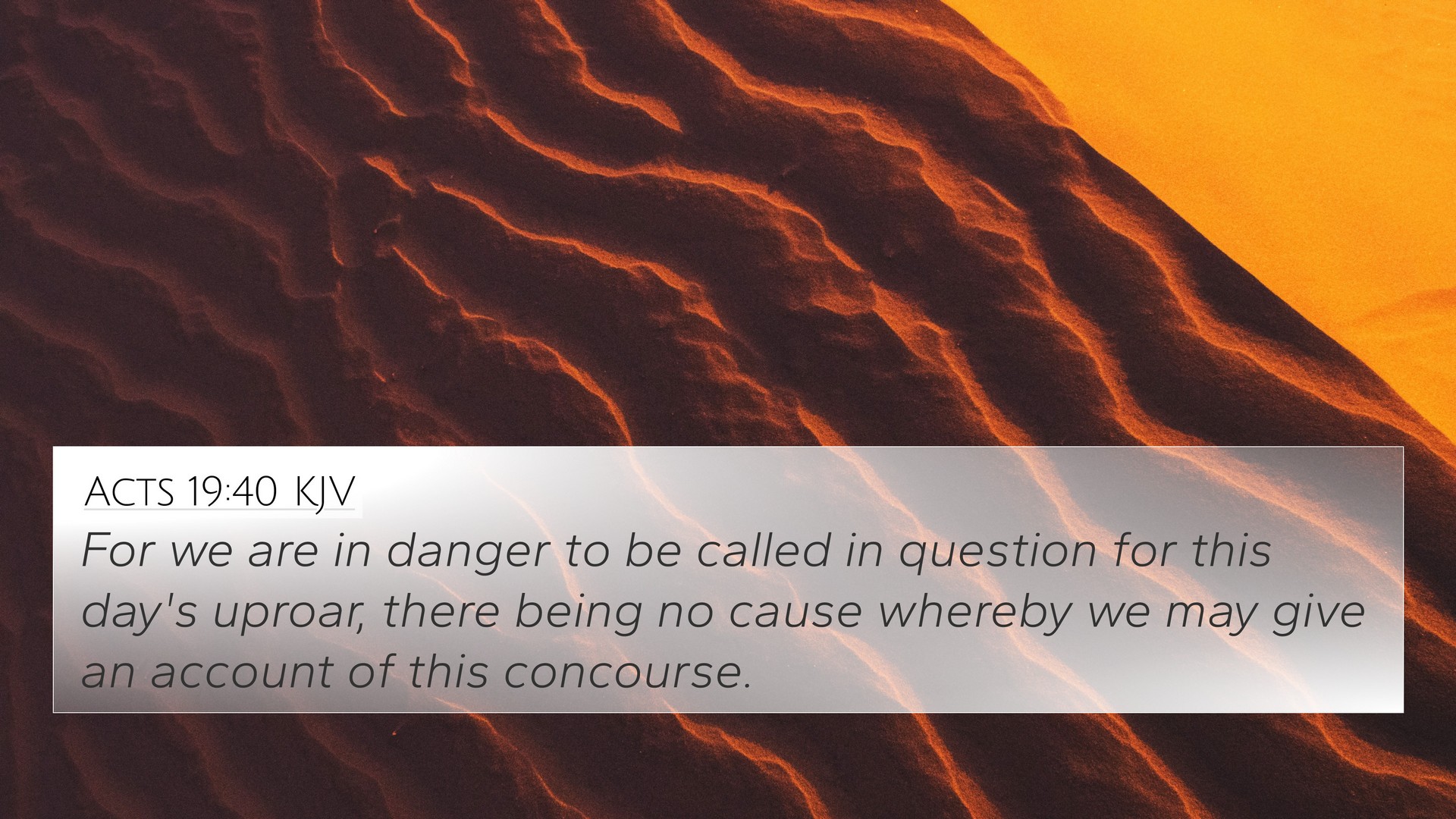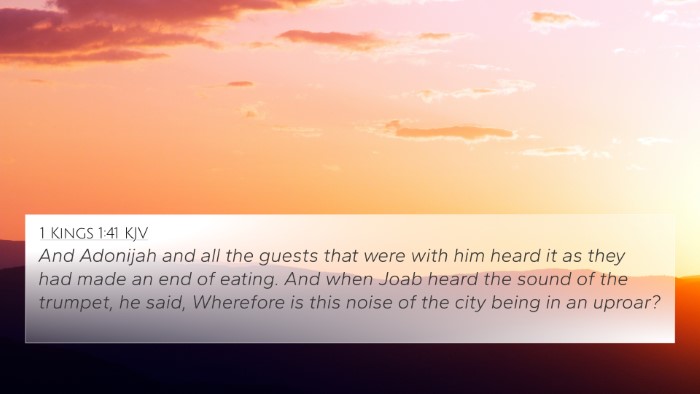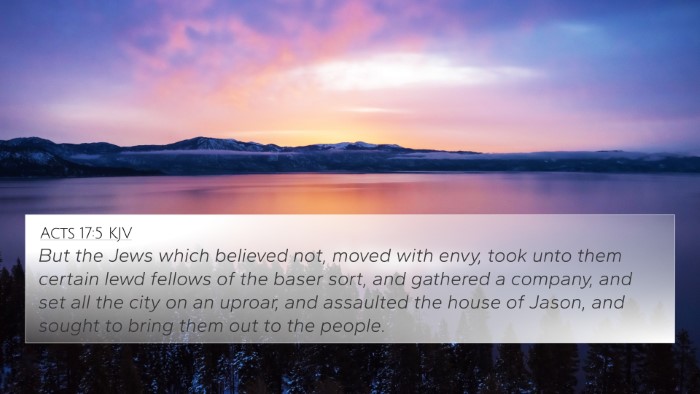Understanding Acts 19:40
The verse Acts 19:40 highlights a critical situation in the early Church context in Ephesus. As tensions rise, Paul and the early Christians face opposition. The verse states, “For we are in danger to be called in question for this day’s uproar, there being no cause whereby we may give an account of this concourse.” Here we find important themes regarding secular authority versus spiritual mission, crowd dynamics, and the wisdom necessary for ministry.
Summarized Insights from Public Domain Commentaries
Through the perspective of notable commentaries, we can gain deeper understanding:
Matthew Henry's Commentary
Henry notes the chaos created in Ephesus due to rising disputes in the temple of Diana, leading to potential legal repercussions for the Christians. His insights emphasize the importance of exercising prudence in the face of tumultuous circumstances, showcasing God’s ability to preserve His people amidst opposition. The uproar stems not from genuine concern but from mob mentality.
Albert Barnes' Notes
Barnes interprets that the uproar was incited by silversmiths who felt threatened by the preaching of Paul. He highlights the political implications of this event and reminds readers of the broader message regarding the confrontation between truth and worldly interests. Barnes encourages believers to recognize the integrity of their mission while navigating through societal challenges.
Adam Clarke's Commentary
Clarke provides an analysis of the legal implications of the event. He underscores that without a valid charge against Paul and his companions, the assembly’s uproar might lead to wider consequences for its participants. Clarke emphasizes that wise counsel should steer the church, advocating for maintaining peace and order. His commentary stresses that wisdom in ministry is critical for lasting influence.
Key Themes and Biblical Connections
Acts 19:40 shares themes with numerous other Bible verses, showcasing the interconnectedness of scripture:
- Acts 5:29 - "We ought to obey God rather than men." This connection emphasizes the balance between obeying God and dealing with civil authorities.
- Romans 13:1-2 - "Let every soul be subject unto the higher powers." This highlights the biblical principle of respecting authority while being committed to God’s truth.
- 1 Peter 2:13-14 - "Submit yourselves to every ordinance of man for the Lord's sake." This verse encourages believers to approach authority with respect.
- 1 Corinthians 14:33 - "For God is not the author of confusion, but of peace." This underlines the importance of maintaining order within the church and community.
- Ecclesiastes 3:1 - "To everything there is a season, and a time to every purpose under the heaven." This stresses that there are appropriate times for confrontation and peace.
- Proverbs 15:1 - “A soft answer turneth away wrath.” This imparts the wisdom needed in dealing with hostile situations.
- Matthew 10:16 - "Behold, I send you forth as sheep in the midst of wolves." This foreshadows the need for wisdom and shrewdness among the disciples during trials.
Applications for Today
The lessons drawn from Acts 19:40 extend beyond its historical context into practical applications for believers today:
- Discernment - Understanding when to speak and when to remain silent is vital in ministry.
- Wisdom - Exercising wisdom in dealing with conflict can avert unnecessary chaos.
- Awareness of Consequences - Being aware of the potential repercussions of actions in a community context is important.
Conclusion
Acts 19:40 serves as a poignant reminder of the early church's challenges. By studying this scripture alongside related verses, believers can cultivate a deeper understanding of faith, wisdom, and the intersection of divine mission with societal structures. Cross-referencing biblical texts enriches our insights and directs our faith journeys.








